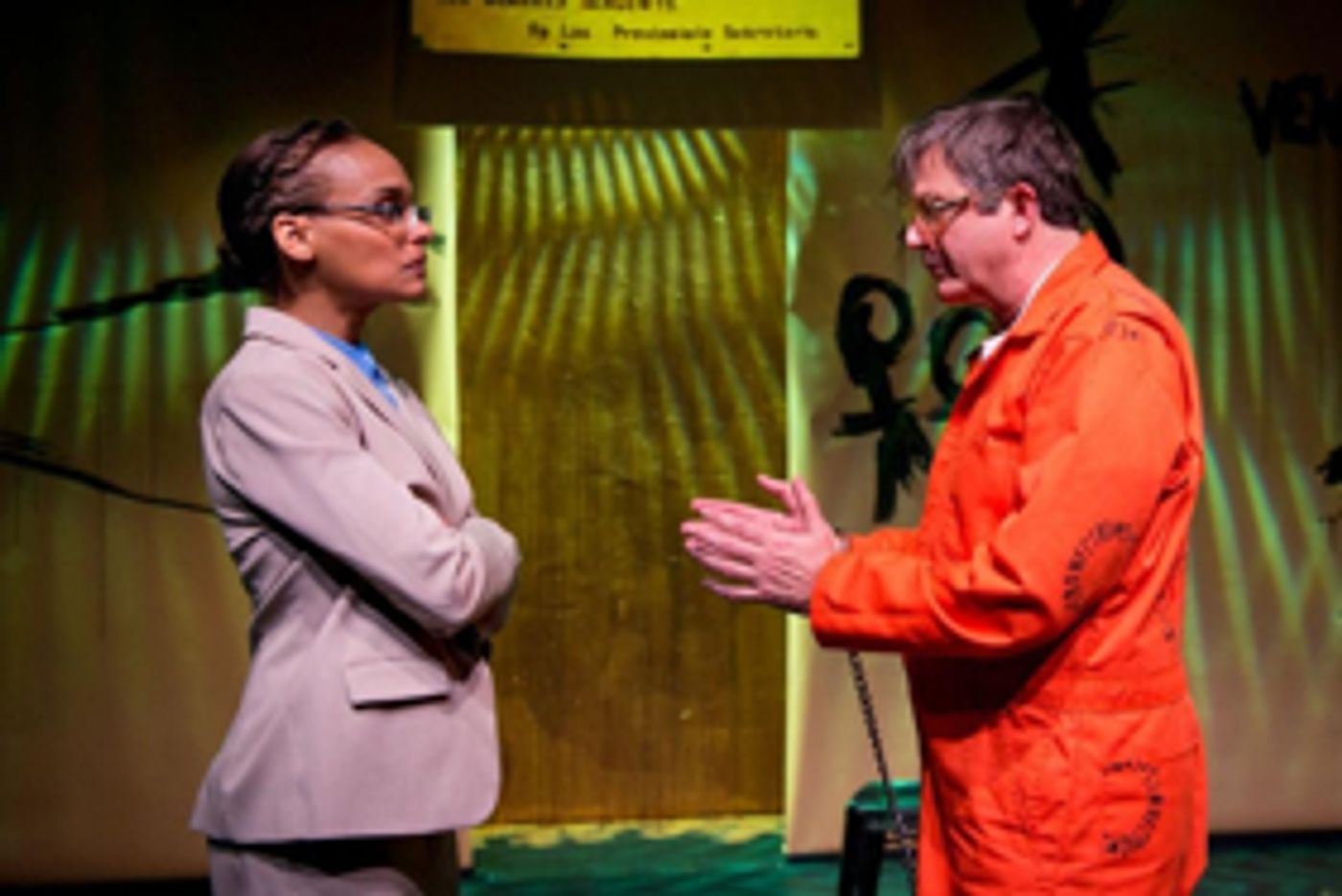Review: The Gamm's A HUMAN BEING DIED THAT NIGHT Can't Quite Connect

The Gamm's current production A HUMAN BEING DIED THAT NIGHT, is a play written by Nicholas Wright in 2013 based on the book of the same name by Dr. Pumala Gobodo-Madikizela about her time on South Africa's Truth and Reconciliation Commission, which began in 1995 after the fall of apartheid. It's an incredibly interesting premise that deals with complex political and racial issues that should be both explored and remembered, but as a dramatic production, it falls unfortunately flat due to a number of factors both in the writing and the production of the play.
The play is 90 minutes with no intermission, and stars Gamm regular Jim O'Brien as Eugene de Kock, a white South African who in his role as a commander in the South African police murdered hundreds of people earning himself the nickname "Prime Evil". Kortney Adams plays Dr. Pumala Gobodo-Madikizela, a black psychologist who elects to interview de Kock in an attempt to understand how a person manages to enact such atrocities. The premise sets us up for what should be a fascinating exploration of mob mentality, racism, anger, systemic violence and perhaps a bit of hope that by understanding these events we'll see whether a human being is truly, irreparably, evil. Instead it adheres too close to actual events and requires the audience to have such a nuanced understanding of those events beforehand, that it ultimately communicates very little.
Apartheid was a horrible, racist system that never should have existed and certainly should not have lasted as long as it did, and it is something that should be studied, understood and never be allowed to happen again. That seems like it should go without saying, but you never know these days. However, unless one knows a lot of specific details about Apartheid, like a South African audience would, it's really hard to connect with this material, and that is a direct failure of the writing. The problems this work addresses are universal, and in order for something this important to have the larger audience that it deserves, there needs to be some additional work put into the primary text in order to really convey the central message. This seems very much like a play to be studied and read along with supplementary historical and contextual readings, rather than performed.
Similarly, the characters are never really fleshed out in a way that makes the audience really care for them. de Kock winds up being the one we learn the most about and start to understand the best, but that's also a really uncomfortable feeling in that the play at times feels like an apology tour for a person who committed atrocities. Empathy is important, and it's at the heart of this work, but although this play allows us to hear, presumably in de Kock's own words how he came to think the way he did, it doesn't feel quite as impactful as it should.
None of these issues are the fault of the actors necessarily, but it's hard to keep the energy up in a production of this nature, and despite the often compelling dialogue, it starts to feel like a didactic history lesson more often than not. Images are sometimes used to punctuate the description of events, but often they flash by very fast.
Overall, this is a play that has tremendous potential, but instead is underwhelming, which is a shame.
A Human Being Died That Night runs March 8 April 1 at The Sandra Feinstein-Gamm Theatre, 172 Exchange St., Pawtucket, RI 02860. Tickets at thegammtheatre.org
Photo: L to R: Kortney Adams as Pumla Gobodo-Madikizela. Background: Jim O'Brien as Eugene de Kock
Reader Reviews
Videos

